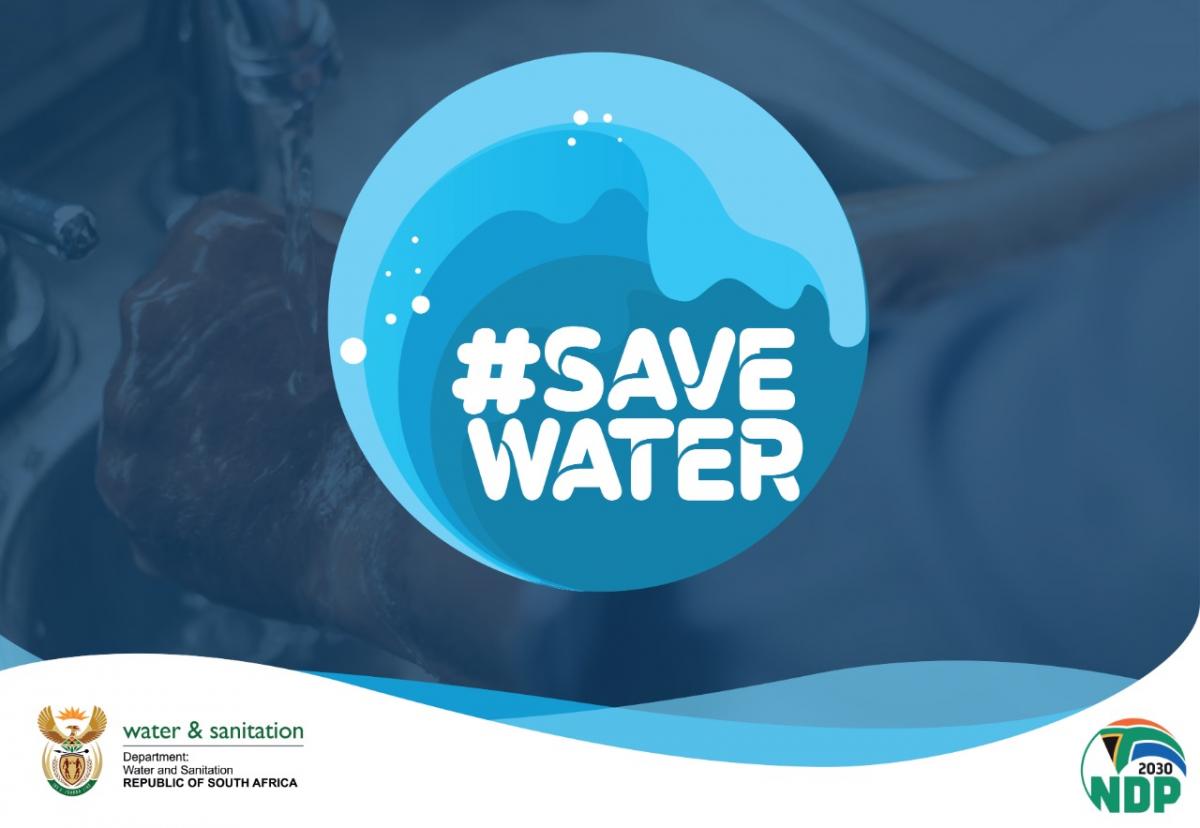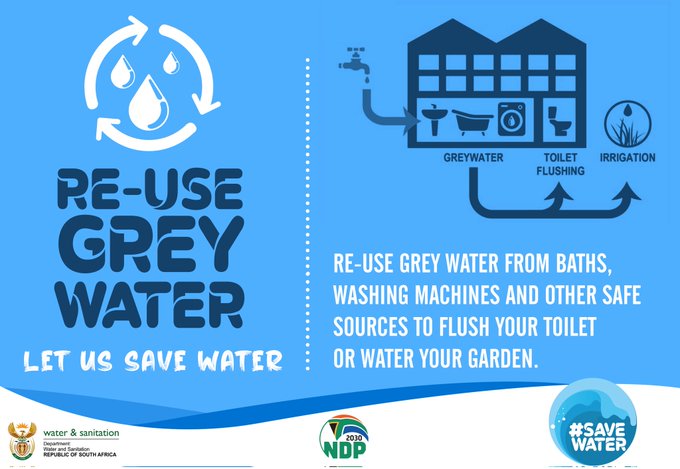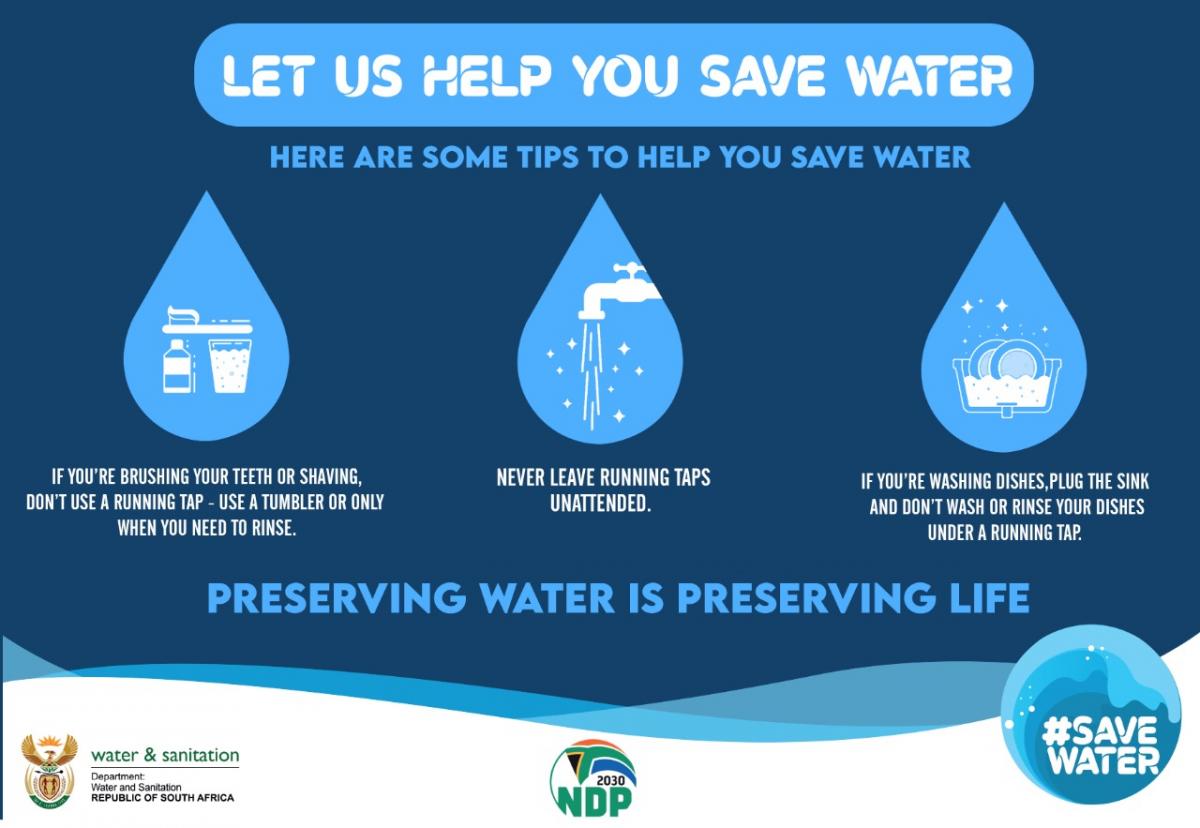 In his State of the Nation Address for 2025, President Cyril Ramaphosa said that “We are investing heavily in expanding our water resources. When we travel to many places, we find that the elderly are complaining about the lack of water. They tell us about how scarce water is in their areas. They are asking government to bring them water. Yes, we will do all of that. Know that water will reach you where you live. You will get it.”
In his State of the Nation Address for 2025, President Cyril Ramaphosa said that “We are investing heavily in expanding our water resources. When we travel to many places, we find that the elderly are complaining about the lack of water. They tell us about how scarce water is in their areas. They are asking government to bring them water. Yes, we will do all of that. Know that water will reach you where you live. You will get it.”
As government forges ahead with the reform agenda, an urgent priority is to ensure a secure and reliable supply of water across the country. Many people in the cities, towns and villages are experiencing more and more frequent water shortages as a result of failing water infrastructure. It is impossible to live without water and it is impossible for the economy to grow without water.
Government is therefore taking a series of decisive actions to resolve the water crisis, to enable the people to get water where they live, whether in townships or rural areas.
To date, the Infrastructure Fund has secured R23 billion for seven large water infrastructure projects. Government has ended delays in major water infrastructure projects like Phase 2 of the Lesotho Highlands Water Project and the uMkhomazi Dam.
Work is underway to prepare for construction of the Ntabelanga Dam on the uMzimvubu River to supply additional water for domestic use and for irrigation in the Eastern Cape.
Within the next year, government will complete the establishment of the National Water Resource Infrastructure Agency to unlock much greater investment in water projects. Through the Water Services Amendment Bill, it will introduce a licensing system for water-service providers and remove licences where providers do not meet the standards for quality drinking water.
Water Saving Tips 
The reliability of water supply by municipalities to households across South Africa is only at 68%, despite the strides made by the Department of Water and Sanitation to eradicate water supply backlogs over the years.
Water and Sanitation Deputy Minister David Mahlobo says this is due to old infrastructure, lack of operation and maintenance on water schemes, and the poor integration between housing programmes and current infrastructure development projects.
“It is a major concern that the provision of reliable supply water is showing signs of decline,” he says.
As a water scarce country, South Africa ranks among 30 driest countries in the world. Most of the country’s water comes from rainfall, but with the recorded average rainfall that is 40% less than the annual world average, the country is often affected by drought.
However, the department has water saving tips for you.
Saving water in your home or business
Turn the tap off between washing your face, brushing your teeth or shaving.
Taking a five-minute shower a day instead of a bath will use a third of the water used bathing in a bath tub, saving up to 400 litres a week.
Showering can use up to 20 litres of water per minute, whereas taking a bath can use between 80 and 150 litres of water per bath. If you prefer to bath, do not fill up the bathtub.
Avoid flushing the toilet unnecessarily. Dispose of tissues, insects and other waste in the trash rather than the toilet. Every time you flush the toilet, 12 litres of water is used.
Fix a leaking toilet otherwise it can waste up to 100 000 litres of water in one year.
Use “grey water” — used water from baths, washing machines and other safe sources to flush your toilet.
Do not overfill or excessively backwash your swimming pool.
Kettles should not be filled to the brim but with just enough water for your needs. This will reduce your electricity bill too.
Use a bucket rather than a hose to wash your car. If you have to use a hose, use a sprayer that can be turned off in-between spraying the car. Using a garden hose could use as much as 30 litres of water per minute.
Farmers must ensure that they keep toxic insecticides away from water sources and streams.
People living in rural areas should be careful not to use the river or riverbank as a toilet.
In the garden
Always water your plants during the early morning hours or in the evening, when temperatures are cooler.
Every time you boil an egg, save the cooled water for your houseplants. They will benefit from the nutrients released from the shell.
Roof water can also be profitably stored in tanks, for watering gardens.
Use “grey water”-- used water from baths, washing machines and other safe sources-- to water your garden.
For more information, visit www.dws.gov.za




